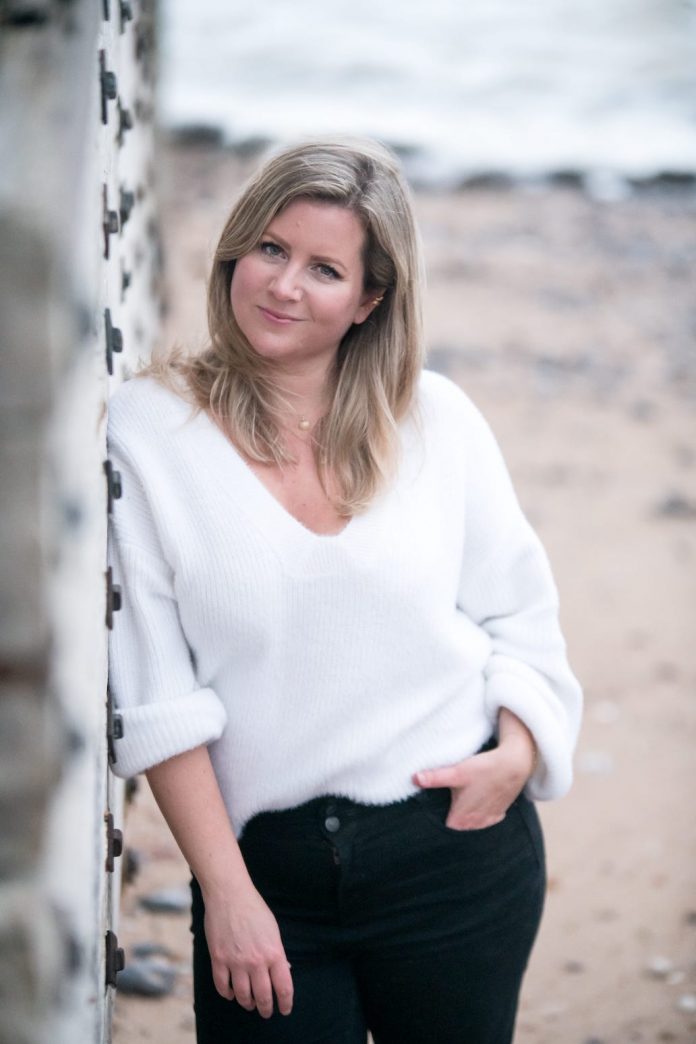London-based author Lizzie Pook has spent a lot of time in Australia and joked with friends and family that it feels like her second home. She has always been interested in the darker side of British-Australian history so what better setting for her new debut novel Moonlight and the Pearler’s Daughter than the North West of WA.
“It was during one road trip through WA that I came across the Fremantle Maritime Museum,” Lizzie tells Have a Go News. “Hidden away inside was a fascinating little exhibition about a British settler family who were part of the dangerous (and often-times brutal) early pearling industry in Shark Bay.
“The strong-willed matriarch Eliza Broadhurst, an early feminist, piqued my interest and stayed in my mind. On the same trip, while rummaging through a second-hand bookshop, I found an old signed copy of Port of Pearls by Hugh Edwards, a brilliant little book about how the small but cosmopolitan township of Broome (Rubibi) became the epicentre of the global pearl shell industry.
“I picked it up out of sheer curiosity, bought it without thinking too much about it and stuffed it away in my bag.
“These two concepts – adventurous tales of pearl diving and a story with a strong-willed heroine at its centre – percolated in my mind for years. It was only when I visited Broome for the first time in 2015 that everything came together.
“Broome was one of the most beautiful places I had ever seen, plus it was home to a rich and engrossing British-Australian history that was certainly very little known in the UK.
“I was absolutely bewitched by tales of sharks, storms, shipwrecks and divers pushed to the limits in pursuit of gleaming pearls. That was that. I had found the inspiration for my fictionalised setting of Bannin Bay.”
Moonlight and the Pearler’s Daughter is set in WA in 1896. As the pearling ships return to Bannin Bay after a long diving season, 20 year old Eliza Brightwell nervously awaits the arrival of her father’s boat.
But when his lugger finally limps in, it brings with it a tale of tragedy. Charles Brightwell, master pearler, has gone missing at sea. It falls to Eliza to seek out the truth behind her father’s disappearance and she sets out to solve the mystery, paying a high price along the way.
After her WA visit and back in London, Lizzie says she got her hands on as many resources as she could find, spending months poring over books in the British Library alongside her work as a freelance journalist.
“Whenever I could, I travelled back to WA, returning to Broome to visit lugger museums, try on diving helmets and walk the jetties and mudflats. Subsequent trips took me around the Dampier Peninsula, where I spent time with Indigenous guides, toured pearl farms and explored the vast landscapes.
“I learnt how to spear mud-crabs; I visited Beagle Bay church with its intricate pearl shell altar; I interviewed everyone I could find from crocodile wranglers to bus drivers. It was a long process, about five years in total but I enjoyed every second of it.”
Spending her early working life as a journalist, Lizzie says that during her 20s she held vague, amorphous dreams of writing a novel but it always seemed unreachable.
“Growing up, I’d simply assumed that books were written by privately educated people with lots of money and connections. I had no idea that actually, all you had to do was put pen to paper and write.
“Travelling around the world as a journalist opened my eyes to so many different stories and gifted me so much inspiration but I never seemed to have enough time to sit down and turn any of it into something solid.
“It was only when I was diagnosed with chronic illness and pretty much ordered to rest by my doctor, that the time opened up for me to be able to write a novel. I did exactly that, researching, drafting and writing a thousand words a day, all of which would come together to create the first draft of Moonlight and the Pearler’s Daughter.
“With Eliza, I wanted to create a believable heroine – someone ballsy and impressive enough to make readers want to follow through the story, but also someone flawed and real, who makes mistakes and struggles with the weight of things that have happened in the past. I think most of us can relate to that.
“Moreover though, I wanted Eliza and many of the other characters, to be representative of how loss can be used as a driving force in life. Loss can be propulsive. It can act as rocket fuel. That’s certainly my experience of grief – that it pushes you to do things you never would have dreamed you were capable of doing.”
Lizzie says she is currently spending most of her days at her desk in grey, rainy London writing her second novel which should hopefully be published in 2023.
“Promoting Moonlight and the Pearler’s Daughter during the pandemic has been a varied but stationary process. I would have loved to have been able to travel but that hasn’t been the case. Still, I’m very fortunate, and having online events means they are accessible to those who might not have been able to attend.
“I’m chatting to people on the other side of the world via phone or Zoom but my abiding view remains the same: cars parked along the frosty street outside my front window and the cats leaping from rooftop-to-rooftop, just as they do every day.”
Moonlight and the Pearler’s Daughter ($32.99, Penguin Random House Australia) is available from good bookshops.

































